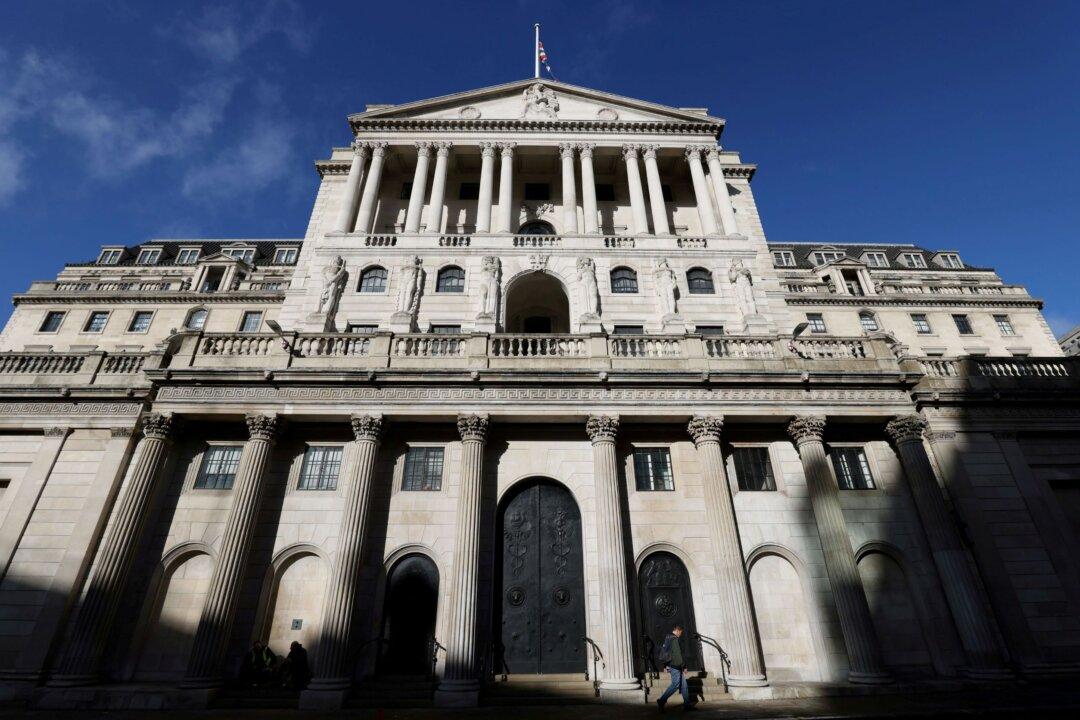Britain’s central bank has raised its key interest rate to 1 percent, the highest level in 13 years, as policymakers scramble to curb soaring inflation that has risen faster than wages and eroded the purchasing power of many households.
The Bank of England announced on May 5 that its rate-setting Monetary Policy Committee (MPC) voted 6–3 for an increase of 25 basis points, or 0.25 of a percentage point, bringing the benchmark interest rate to a level not seen since 2009.





